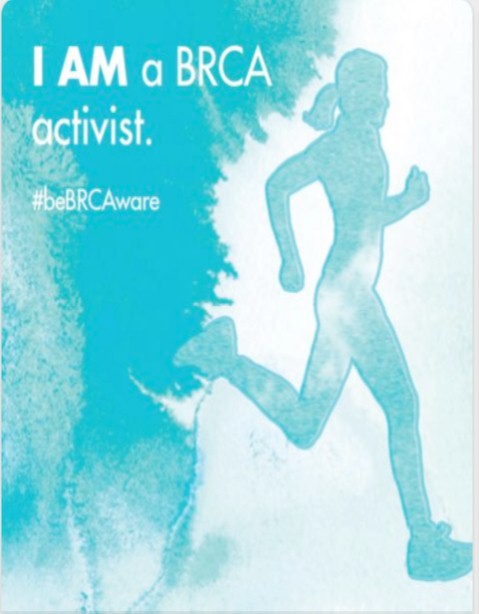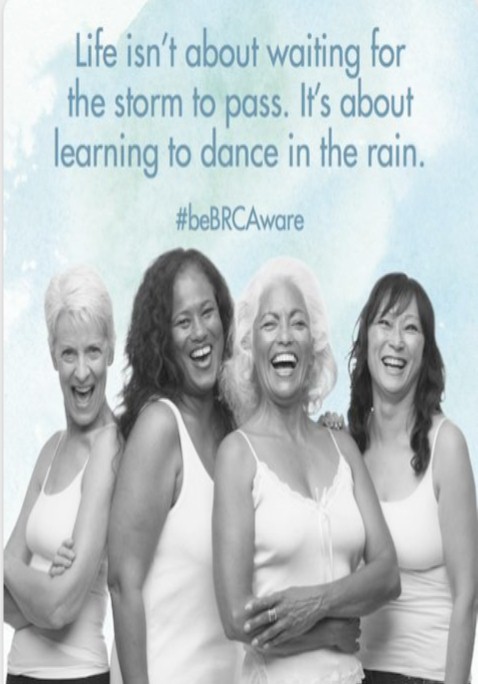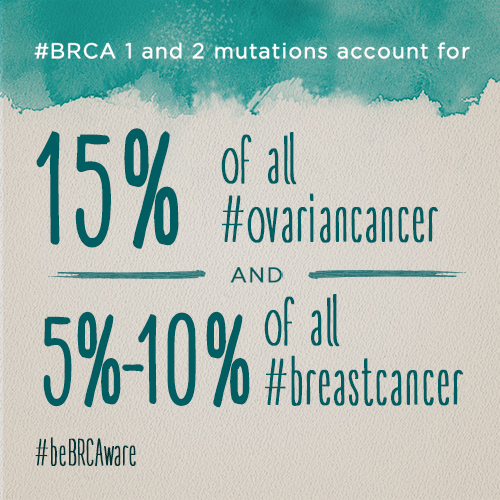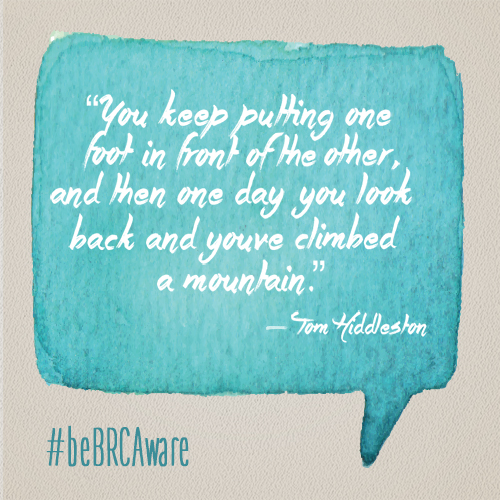Over the years I have had family friends who have been diagnosed with breast cancer but fortunately no one close to me has been diagnosed with ovarian cancer. This doesn’t mean I don’t take cancer seriously, every year I definitely go for my annual mammogram. That said, I was very interested to learn more about the BRCA Gene awareness campaign. Information is power as they say.
What is a BRCA gene?
BRCA1 and BRCA2 are human genes involved with cell growth, cell division, and cell repair. Although they are most commonly associated with Breast Cancer, approximately 15% of women with ovarian cancer also have BRCA gene mutations.1,2
Who should get tested for the BRCA gene?
There is a misperception that the only those with a family history of breast or ovarian cancer should be tested however national guidelines from organizations such as NCCN, ASCO and SGO recommend that all women with epithelial ovarian cancer be considered for BRCA testing. Almost half (47%) of BRCA-positive ovarian cancer have no significant family history of ovarian or breast cancer.9
The test is simple and easy. A blood or saliva sample can be taken at your physician’s office or at a local lab. Your BRCA status in ovarian cancer can affect treatment outcomes, and for this reason, it is important for women with ovarian cancer to receive genetic testing so that they can plan with their doctor an individual treatment plan that is optimized for their specific cancer.
Important BRCA Facts
- Family history and age at diagnosis are poor predictors of BRCA status in ovarian cancer patients8,9
- Almost half (47%) of BRCA-positive ovarian cancer patients have no significant family history of ovarian or breast cancer9
- Over two thirds (71%) of BRCA-positive ovarian cancer patients are aged 50 or older9
- For the 60% of ovarian cancer patients whose cancer has spread to other organs by the time of diagnosis, the five-year survival rate is only 27%.
1
Learn more about the BRCA Gene Video
How Can You Raise Awareness for Ovarian Cancer
Visit website myocjourney.com, which provides information about diagnosis, BRCA gene testing, treatment plans, support networks that may be helpful to these women now and can help alert more women to what they need to know about BRCA and ovarian cancer.
For more information, visit myocjourney.com
Stay Social on Twitter @beBRCAware // and Facebook/beBRCAware
Disclosure: I received $150 from AstraZeneca, and any opinions expressed by me are honest and reflect my actual experience. This is a sponsored post for SheSpeaks/AstraZeneca.
Sources:
1. Pal T, Permuth-Wey J, Betts JA, et al. BRCA1 and BRCA2 mutations account for a large proportion of ovarian carcinoma cases. Cancer. 2005;104(12):2807-2816.
2. National Cancer Institute. BRCA1 and BRCA2: Cancer risk and genetic testing. http://www.cancer.gov/cancertopics/factsheet/Risk/BRCA. Accessed June 2, 2014.
8. Song H, Cicek MS, Dicks E, et al. The contribution of deleterious germline mutations in BRCA1, BRCA2 and the mismatch repair genes to ovarian cancer in the population. Hum Mol Gen. 2014;(April 30):1-7.
9. Alsop K, Fereday S, Meldrum C, et al. BRCA mutation frequency and patterns of treatment response in BRCA mutation-positive women with ovarian cancer: a report from the Australian Ovarian Cancer Study Group. J Clin Oncol. 2012;30(21):2654-2663.





